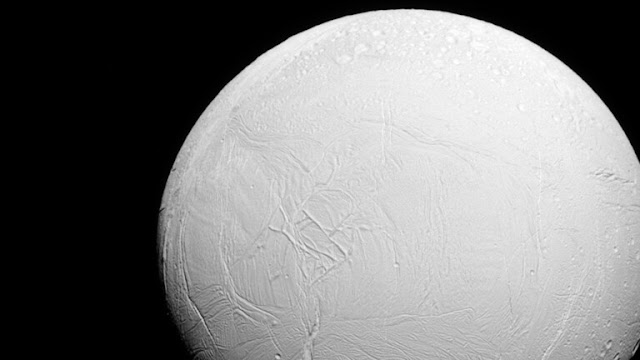The discovery of a source of methane on the surface of one of Saturn's moons may be a favorable environment for life
 |
AFP NASA/JPL-Caltech/Space Science Institute Enceladus, moon of Saturn |
Astronomers from the American University of Arizona and the Paris University of Science and Letters have discovered an unknown source of methane on the surface of Enceladus, one of the moons of Saturn, which may constitute a favorable environment for life there.
What is Methane?
Methane (CH4) is a colorless, odorless, and highly flammable gas composed of one carbon atom and four hydrogen atoms.
It can be produced naturally and synthetically, and when burned in the presence of oxygen, it produces carbon dioxide and water vapor.
Methane is the primary component of natural gas and is used to produce heat and electricity around the world.
Methane is also used in chemical reactions to produce other important gases like hydrogen and carbon monoxide and carbon black,
a chemical compound that's found in some types of rubber used in car tires.
The gas was discovered based on data from the Cassini spacecraft
And an article published in the scientific journal Nature stated that the data was obtained thanks to the "Cassini" spacecraft of the "NASA" space agency, the US space agency, and indicates the presence of a liquid inner ocean on the surface of Enceladus.
Analysis of the smoke emitted by the ocean into space suggests the presence of alkaline hydrothermal vents on the ocean floor, knowing that on Earth, similar vents host bacterial ecosystems rich in methane-generating bacteria.
Mathematical analyzes of the data indicate that the amount of methane that is emitted from the ocean of Enceladus
- It cannot be explained solely by changes in abiotic factors in the hard core of Enceladus
- Also It does not contradict the hypothesis that there are favorable conditions for the life of methanogenic bacteria
- It is in line with the methane-generating hypothesis that favors a high probability of the emergence of life
Although the probability of life on Enceladus is low, Cassini data indicate conditions similar to those of life-sustaining vents on Earth, and the presence of an unknown source of methane, the nature of which may be determined by subsequent studies.
Source: Nature
you can read also :

Comments
Post a Comment